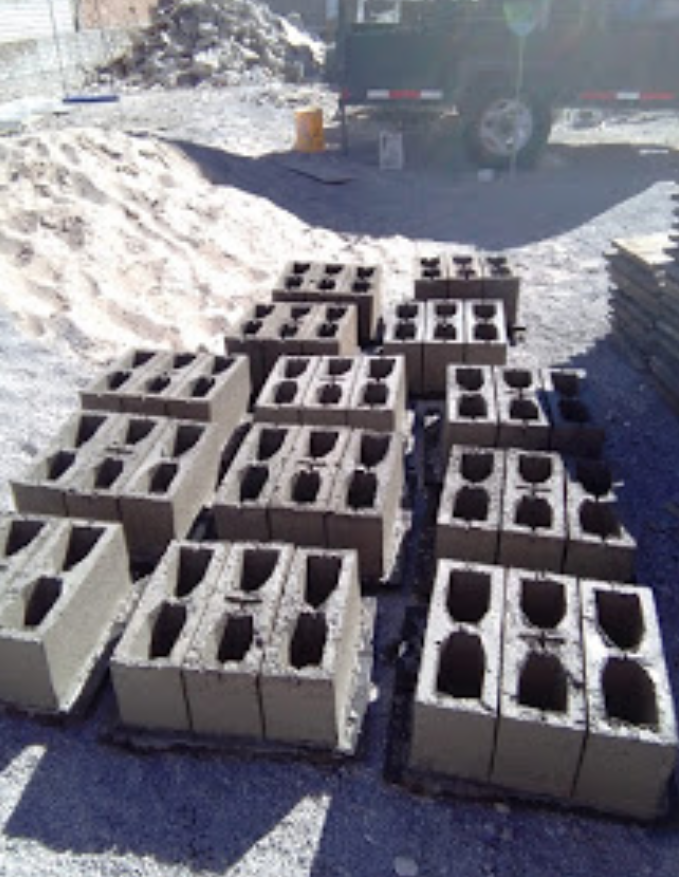With FSW’s help, immigrants build better lives—one concrete block at a time
By Elket Rodríguez
Thanks to a clever idea and willingness to work, three Cuban immigrants are supporting themselves and their families while living in a refugee shelter supported by Fellowship Southwest in Juarez, Mexico.
Shelter Director Rosalío Sosa knows his Cuban friends well and appreciates their strong desire to work. So, when he realized a concrete fabrication machine was for sale, he saw a path to financial independence. And with Fellowship Southwest’s support, he bought the machine and moved it to Juarez.
The journey from purchase to production has been long and challenging, but Sosa and his friends have remained resilient.
Last May, FSW partnered with Sosa in this entrepreneurial venture to help asylum seekers build a dignified living in northern Mexico. They already had encountered months of lockdowns, border closures, uncertainty and suspension of immigration hearings due to the COVID-19 pandemic.
Many logistical obstacles arose, exacerbated by COVID-19 and the Mexican government’s response to the pandemic. Then they discovered a technical challenge—tapping into a 220-volt electrical line, necessary to power the machine.
But even as they waited, they promoted their budding business and lined up buyers before they even built a block. “We already sold 3,000 blocks ahead of time,” reported Sosa, pastor of Tierra de Oro Baptist Church in El Paso and director of Red de Albergues para Migrante—the Migrant Shelter Network, which operates 14 shelters in the state of Chihuahua, Mexico, primarily in Juarez, but as far as 100 miles west in the desert, in the village of Palomas.
“The machine has been operating for two weeks already,” Sosa reported. “We’ve also been asked by potential clients in Asención and Palomas. It is a process, and we go by stages.”
Fellowship Southwest provides ongoing funds to Sosa’s ministry. FSW helps the pastor operate several migrant shelters in Chihuahua, as well as to feed and protect thousands of migrants and asylum seekers under his care.
Now, the concrete machine produces 3,000 blocks per week, which is its maximum capacity, Sosa said.
“We will begin to produce at 100 percent of the concrete block machine’s capacity this week,” he said, adding he seeks to produce the best blocks on the market. That’s why he tests the blocks for quality assurance.
“There are very cheap blocks on the market right now, because they use very low-quality cement in them,” he explained. “But we use the best, Cementos de Chihuahua (Chihuahua Cement), which is recognized worldwide. That is why I asked Cementos de Chihuahua for a technician to test the quality of the blocks we make, so that he can certify our product.”
Although this project is in its initial stages, Sosa is optimistic this enterprise will generate a steady source of temporary work for migrant families who show up at the shelters.
“We continue to produce blocks because God does not sponsor failures,” he said. "That is why I am not giving up."
In addition to providing a livelihood for the refugees, the concrete machine will bless other immigrants well into the future.
Sosa bought the machine with a zero-interest loan from Fellowship Southwest, provided by one of its consistent supporters, the Christian Mission Concerns foundation. As Sosa and the Cuban workers repay the loan, the money will be available for other immigrant-relief ministries on the border.
Fellowship Southwest helps provide immigrant relief all along the U.S.-Mexico border. It supports the refugee ministries of Sosa and a network of pastors, from the Gulf of Mexico to the Pacific Ocean. You can support these pastors and their ministries by donating to the Fellowship Southwest Immigrant Relief Ministry by clicking here.
Elket Rodríguez is the immigrant and refugee advocacy and missions’ specialist for the Cooperative Baptist Fellowship and Fellowship Southwest.


